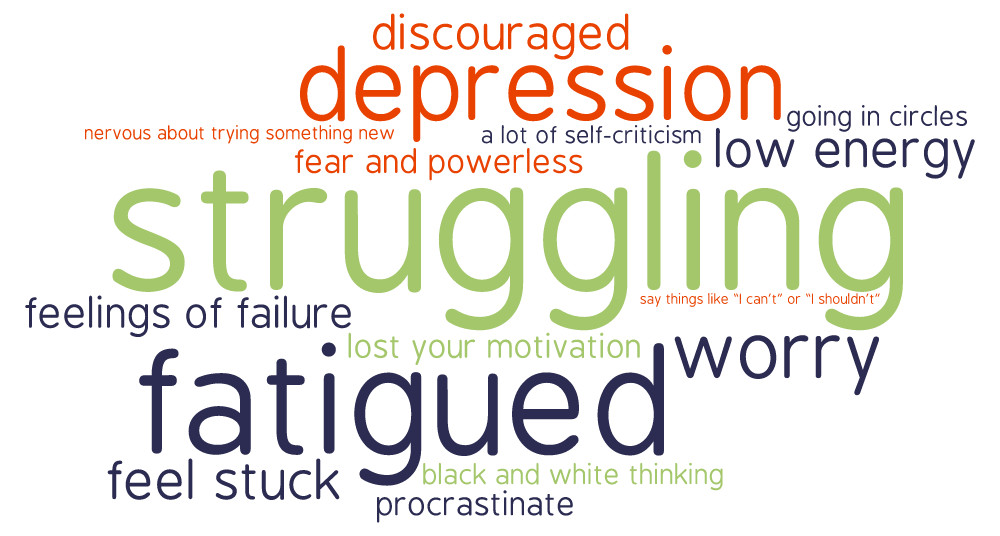
by Deirdre | Apr 7, 2016 | Resilient Mindset
We all have a space in our heart — every one of us – that longs for connection and meaning. We all want to feel like our life, our efforts, our relationships matter, at least in some small way, to other people in this world. It’s a very vulnerable spot within us and we spend most of our lives trying to protect it.
(more…)

by Deirdre | Mar 8, 2015 | Inspired Living, Resilient Mindset
“Anything worth doing is worth doing badly.” – G. K. Chesterton
Quick. Think of your most important relationship. Is it partner, kids, an inspiring friend, a parent, a mentor at work? Think again. What about the relationship you have with the voice in your mind? How harmonious is that relationship for you? Kudos if you have developed an equally great relationship with your inner critic and your inner champion.
If you’re like most of us you probably want to give that critical voice a Xanax and move on. What a trickster and killjoy it can be! But when we don’t develop a good relationship with this voice it starts running the show. We cut ourselves off from what we’re capable of. It stops us from reaching out to other people. It preaches perfection.
I think what GK Chesterton is arguing is that most of life doesn’t require all that much precision. It’s better to show up regularly with a decent effort than to flame and then crash. There’s a lot to be said for doing “just enough” for your responsibilities and saving some time for restorative and nurturing pleasure. Your inner champion knows this.
Who’s Voice?
How does your inner critic treat you? Does the voice show up to remind you that you’re not all that and stop you from exploring your talents? Maybe you are acutely aware of critical comments people make about you. Do you remember every slight or casual comment as a barb? Or perhaps you have mindlessly followed the path others have laid out for you, unsure of yourself and your ability to choose the right path for yourself.
Over the years women have shared their inner critic stories with me:
- My inner critic is a gorgeous model in fantastic shape. She is organized, energetic, motivated and great at everything she does.
- Mine is a crazy wild child who is somewhat spoiled. She is loud and spontaneous. When she wants my full and undivided attention she sings loudly.
- Mine lives on a farm. She’s always trying to rope me in and keep me from “going for it”.
- Mine is an old woman, 30 or 40 years years older than me. She’s always complaining that I have neglected her dreams, desires and wishes.
- Mine is a doctor, forever evaluating and assessing. She’s looking for what is wrong to fix it. All she sees is the worse case scenario.
- Mine often tells me if I can’t do some thing perfectly, then it’s not worth doing.
- Mine is a stern pinched judgmental old woman who is always taking me to task for making poor choices or not being perfect in every way.
Doesn’t that make you tired just reading it???
Sadly, ignoring the critical voice just doesn’t work. First, it falls out of touch with reality. You locked it away and it hasn’t watched you grow up. Remember when you were a kid and your parents’ friends came over. They couldn’t stop themselves from saying how much you’d grown, how tall you were, how grown up you were now. You’d roll your eyes and know, with the pure conviction of a child, that you were never going to be that lame when you grew up.
Guess again. When you don’t stay in relationship with your inner critic it turns into one of those lame adults. When you don’t really take in your accomplishments and share them with the voice you are not integrating everything you learn in life. The voice needs new ways to get your attention. It has to get really loud to catch your attention. And when loud doesn’t work then it gets nasty.
Signs that you’ve been ignoring the voice for too long

Get to Know Both Voices
It may not seem like it but you can influence whether you hear your inner critic or your inner champion more clearly. Your inner critic is louder so you have to listen harder for your inner champion.
Acknowledge your inner critic
Thank them for keeping you safe, even if they overdo it sometimes. More gold stars if you can learn to give thanks for your inner critic and how they may have stopped you from doing something really stupid at least once.
Check your stress level
Your body may already under a lot of stress. Perhaps you notice that you’re craving more sugar or drinking more coffee. You may be snappish with people around you and feel like you’re under more pressure than usual. Your inner critic is going to be louder and more negative when this is going on. Do some breathing exercises and coax your mind back into calmness. Then see if you can take a break, go for a walk or schedule some R&R. Your inner champion goes under cover when you’re stressed.
Explore what’s triggering your inner critic
What is your inner critic trying to protect you from? There’s an underlying seed of something that is triggering it. Do some journalling about where you are stuck. See if you can put some behaviours together with your inner critic. Do you procrastinate? Avoid new challenges? Avoid certain people? See what you’re not doing because you want to avoid your inner critic.
Remember what’s important to you
Keep a reminder of your big picture nearby. This is where your inner champion knows the score. What is the real contribution you’re trying to make? Who will it help? What do they really need? Keeping in touch with your own personal why can help you tiptoe through the stories and consequences that your inner critic is throwing around.
Who says?
Maybe your inner critic is worried about you breaking the rules. We’re taught a lot of rules along the way that we realize later are just opinions. Or maybe the rule that was important once but not now. When you pause to ask ‘who says?’ it gives you a moment to sort through whose rule this is and whether it belongs to you anymore.
Create an advisory board
Find some of your biggest supporters — your outer champions. Find people you admire and aspire to be like. People whose values you admire. Form an informal advisory board that meets in person or just in your head. When you have something big to do and your inner critic is getting in the way you can turn to them for advice. They can give you a balanced perspective on your strengths and weaknesses.
Posted by Deirdre Walsh
Image: Listen to your inner voice by BrewingColors under Creative Commons 2.0
If you enjoyed this post, please share it with your friends!

by Deirdre | Sep 21, 2012 | Healthy Mind, Inspired Living, Mindful living
When do we know when we’re under stress? I’m way too familiar with the signs from my body that I’m burning through my energy reserves. I start getting really sensitive to sound and interruptions. I need the kids to turn down the music in the car. All of a sudden I can’t remember things. My head, back and hip start aching. My eyes get really, really tired – all the way back to my brain. I lose my sense of humor – big time.
Getting more under stress
That’s when I turn to the thing that comforts or energizes me now – and makes me feel bad later. All the women I work with have some kind of go-to when they get those signals from their body. For some, it’s hitting the kitchen after the kids go to bed. For others, it’s the glass of wine at the end of the day that goes to two, or sometimes three on a bad day. Some of them are queens of the meltdown – not meaning to fly off the handle, but powerless to stop themselves. Others are awake at night, believing if they keep obsessing about the details that the day will go better. Me, I usually head for sugary treats – either chocolate or wine.
All these things provide soothing short-term comfort, but really are small, relentless steps towards feeling crappy and ashamed.
Why do we do these things?
Because our bodies are looking for something to stabilize the effects of the stress hormone, cortisol. That’s the bad boy that your pituitary gland pumps into your bloodstream after your hypothalamus – the stress thermostat in your brain – senses you are not safe. Cortisol is an amazing biochemical when it gets in, does its job and gets out. It’s a master at protecting you from danger, either by fight, flight or freeze. It’s a powerful ally.
But if you call on it too often – with worry, or running late all the time, or adrenaline rushes – it starts running the show and your body pays the price. I’ve written about how uncontrolled cortisol plays havoc with your system here.
But the worst offense that uncontrolled cortisol commits against busy women is this:
Even though they love their life, they are tired and their body hurts.
Tired, tired tired
Tired in the morning instead of bouncing out of bed to greet the day. Tired in the afternoon, often looking for a pick me-up. Tired in the evening, often crashing in front of the tube for some House and Garden TV, or some trashy pleasure on a really tired night. Too tired to exercise, or eat right, or be present to the wonderfulness of their life.
I’ve written about the three-stage downward spiral of stress before:
- busy multitasker – where you feel wired and tired at the same time. Life is busy, but you’re proud of what you can accomplish.
- burned out – where you’re always behind and you wonder how you’re going to catch up. You doze off easily when you’re forced to sit down.
- flat-lining – when you can’t keep up anymore and have to cut back on work and activities
These wonderful, gorgeous women drift further and further from the warm, kind, generous person they used to be. They muscle through the day on nerves and steel. And, really, they know they’re not much fun to be around anymore. This is not who they thought they’d be at this point in their life.
Does this sound familiar?
When I’ve drifted to away from being the me I want to be I’ve learned the hard way that all the chocolate and sugar in the world (or supplements or self-talk) will not help – well not for more than an hour or so. I’ve learned that I need to manage how the cortisol is affecting my body, and for me that means water, guided imagery, light exercise or meditation.
Tell me, how about you? What have you learned to keep yourself well?
Posted by Deirdre Walsh
Image: Death to Stock
If you enjoyed this post, please share it with your friends!

by Deirdre | Aug 30, 2012 | Inspired Living, Mindful living
Client Insights is an occasional series of articles on breakthroughs that clients have experienced during coaching sessions. Client details changed to protect those released to fly.
Before we get to the rest of the post, I wanted to remind everyone that today is an official “blue moon”. What it means is that August has two full moons this month – one on August 2nd and one on August 31st. It’s not really anything more a scheduling blip between the calendar and the moon. But it does remind us to go and do something we only do “once in a blue moon”. I gently suggest that you make that something fun.
Penny and I were coming towards the end of our sessions and I was feeling like we had just started getting close to the heart of things. I was constantly amazed at the tales of accomplishment she would bring to our sessions, but concerned because she didn’t see them as accomplishments herself. She couldn’t bask in the glory of her talent and awesomeness.
I really enjoyed coaching Penny – she has a lovely, ironic sense of humor and always showed up to coaching raring to go. She’d been working at the same place for over a decade before making a change to a new company, right around a milestone birthday. She was worried about falling into the same patterns at work – of being the underappreciated office go-to who got left holding a lot of bags. She was starting to feel that her personal time was more important and she wanted to have more control to focus on life outside of work.
We circled through a number of calls as Penny was establishing who she was going to be at her new job. She was determined to make things be different this time, but was often unsure as to how to do that. She found herself falling into old patterns, even in the new environment. We talked about the things that gave meaning to her life – spending time with friends, having downtime at home and, most importantly, getting back to a writing career that she’d put aside to make it in the “real world”.
The place where core values and actions fail to meet is a juicy place to spend time in coaching. I wanted Penny to get really clear for herself: “What is it about writing that is most meaningful for you?” She felt writing let her express herself in way that was never open to her before. She had absorbed the lessons of early life to be hard-working and always do a good job at your paid job. The first big aha she had was when she made the important distinction between time spent and time invested. She realized that spending time writing was an investment in her and not a silly hobby spent to pass the time.
Her insights started coming fast and furious from there.
On the next call she mentioned speaking to a co-worker late on a Friday afternoon. He was bemoaning the fact that the week had run late, and he had so much work for next week, and his weekend was booked with family events, and he had so much to look after at his house, and . . . . . Penny laughed as she called him a “sad-sack”, moaning about the state of his life when he was steeped in abundance. The abundance of a good job, of a healthy family, of a loving home. She marvelled at how he couldn’t see the riches that were right in front of him.
And then she said something that made me cheer inside. “You know, Deirdre, I saw too much of myself in him. Seeing life for the burden that it is and not for the gift. And now I see how my previous co-workers saw me. No wonder they avoided me.” She chuckled for a moment – good sign, I thought. And then she said something that really made me cheer. “I want more for myself from now on.”
Her first act was to put aside the perfectionism she’d been controlling herself with for years. She decided that her best efforts were going to be enough for her job. What is truly remarkable about this insight is that she broke through something that keeps so many of us stuck in life.
She decided she was enough.
After that huge insight, many of the qualities of that Penny wanted in her life fell into place – a bit like dominos. She felt a lot more efficient, and much less anxious, at work. She knew what she was capable of doing and decided to do her best to not worry about the rest. She decided to change up her exercise routine to suit her mood. She wanted to capture the great days to walk outside with her husband during the summer. She felt that coaching had freed her up to take less responsibility for everyone else’s experience and more for her own.
And she started writing regularly.
So I ask you . . .
Where do you downplay your achievements?
Are there core values in your life that you’re not taking daily or weekly action to express in your life?
What is one small action you can take to plant a seed of creative self-expression?
Posted by Deirdre Walsh
Image: iStockphoto
If you enjoyed this post, please share it with your friends!

by Deirdre | Mar 30, 2012 | Inspired Living, Resilient Mindset
Most of the time when we feel blocked it is because we are safer that way. We may not be happy, but at least we know what we are – unhappy. ~ Julia Cameron
Whenever I meet someone who is interested in growth and continuing to unlock their potential they usually mention Julia Cameron’s The Artist’s Way. It seems like her book is on the required reading list for squeezing more juice out of life.
Julia has a very change-friendly approach. She suggests creating a zone of safety that allows you to experiment and test. It also helps you get to know those internal voices that can stop us dead or lead us to a new ease with life – our inner critic and our inner champion.
The Inner Critic
Any time we get close to the edge of growth we stir up the inner critic. I’ve written about it here. When we start to take on new challenges, this critical voice can stop us from even beginning to change. It may be so overbearing and judgemental that we seek self soothing behaviors such as eating, drinking, excessively watching TV, sleeping or shopping, etc. in order to drown it out.
Most people are not aware that this judgemental voice is not real. It’s running critical commentary has been there since childhood and it feels quite natural. As Cheri Huber, Zen teacher, says: “That voice inside your head is not the voice of God – it just sounds like it thinks it is.” The inner critic’s self-appointed job is to spare us the shame and pain that might come from trying and failing. But, with irony abound, the inner critic makes us feel the endless shame and pain it’s trying so hard to save us from.
As coach Michael Neill puts so well: “The problem is not that you say horrible things to yourself; the problem is that you listen to them.” What I’ve found helpful in dealing with this voice is to understand that it’s our mind’s misguided attempt to keep us out of trouble. Our brain vigilantly defends us from danger by pumping out the stress chemicals that make us want to fight or flee the situation. Before it does that it floods us with these critical judgements that make us doubt our competence to even try.
The Inner Champion
There is another, softer, voice that is there to guide you during change, if you take the time to listen for it. Your inner champion is the internal voice that supports resilience, confidence and, ultimately has us be more successful in life. According to Dr. Amy Johnson, a psychotherapist and life coach, the inner champion has three characteristics that make it very different from the inner critic:
- The real still small voice within you doesn’t think you suck. Your inner champion may guide you away from things that do not serve you or others, but without shame or criticism.
- Truth has an undercurrent of peace. Your inner champion moves you towards clarity without judgement. You may feel loss and uncertainty with the guidance, but you will also feel a sense of rightness and closure.
- Fear has urgency. Truth is patient. Your inner champion will guide you to what’s right rather than have you run from what’s wrong. And there’s all the time in the world for that.
The Inner Champion springs from two other neural systems in our brain – the system that draws us to rewards and pleasure and the one the one that bonds and attaches us to close groups. It draws us towards creating, exploring, connecting and enhancing the lives of those around us. But because we were designed to survive threat first, the inner champion is like a beautiful bird singing outside the window while the inner critic belts out punk tunes with her band at the front of the room.
This story describes the tussle between the two voices so beautifully:
One evening an old Cherokee told his grandson about a battle that goes on inside people. He said, “My son, the battle is between 2 wolves inside us all.
One is Evil. It is anger, envy, jealousy, sorrow, regret, greed, arrogance, self-pity, guilt, worry, resentment, inferiority, lies, false pride, superiority, and ego.
The other is Good. It is joy, peace, love, hope, serenity, humility, kindness, benevolence, empathy, generosity, truth, compassion and faith.”
The grandson thought about it for a minute and then asked his grandfather: “Which wolf wins?” The old Cherokee simply replied, “The one you feed.”
Posted by Deirdre Walsh
Image: Supergirl, iStockphoto
If you enjoyed this post, please share it with your friends!






